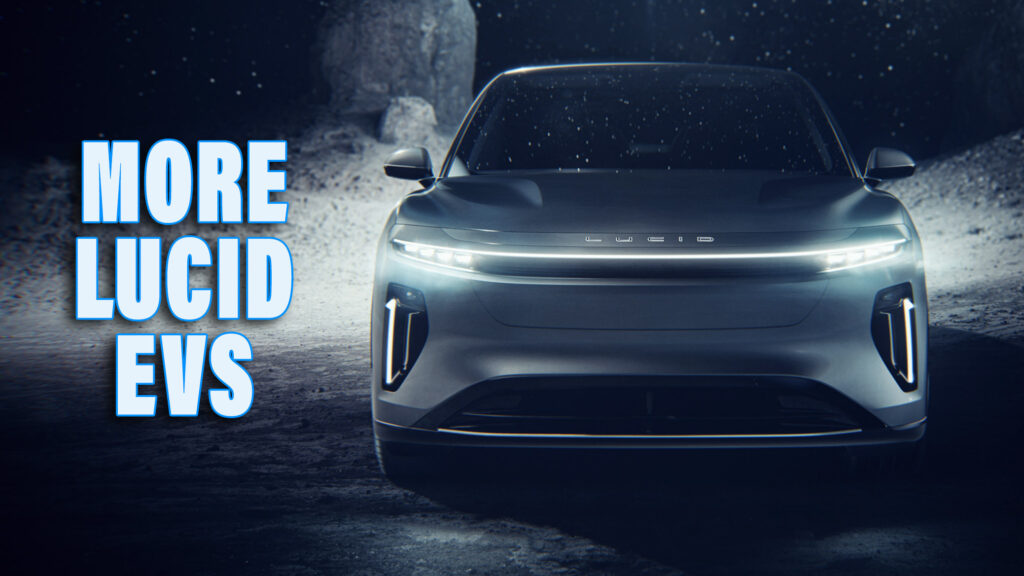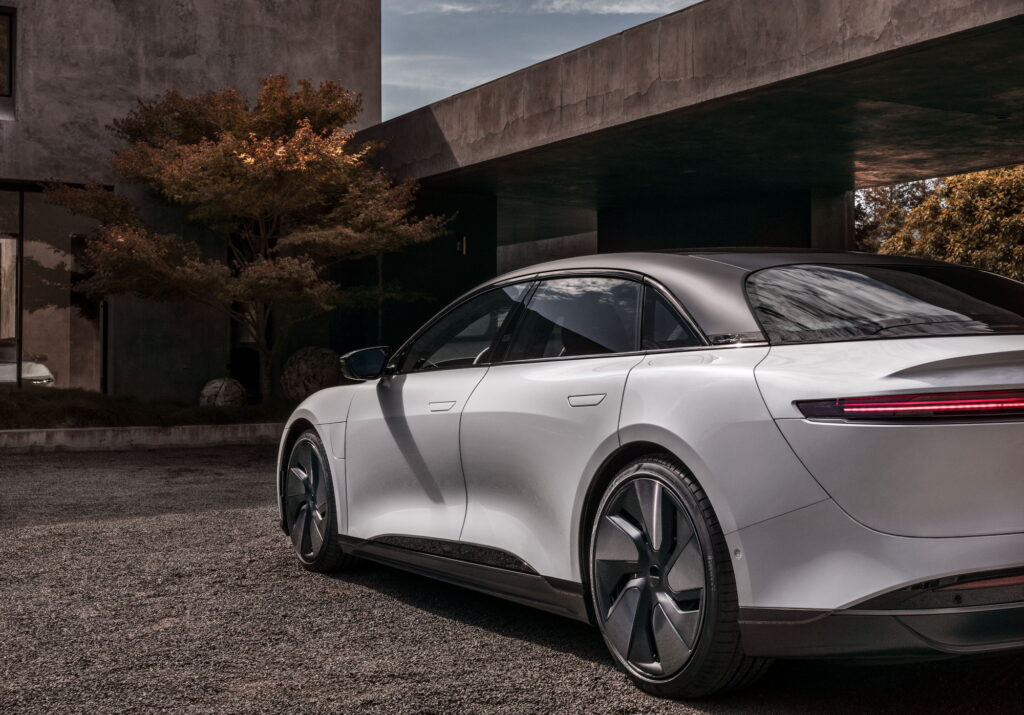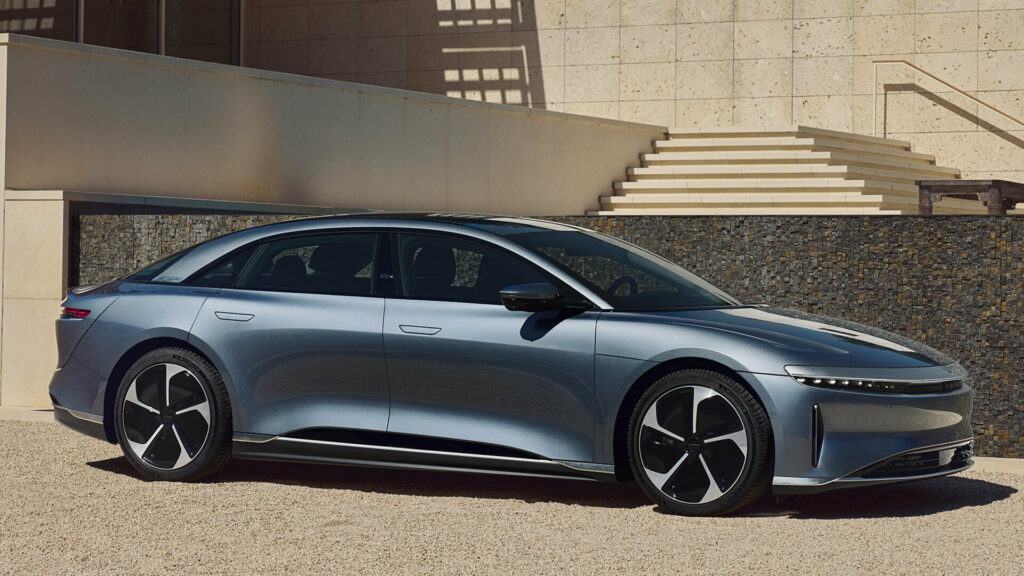The company hasn’t revealed when they’ll launch their smaller EVs, which will target a $50k starting price
3 hours ago
 –>
–> 
–>
Peter Rawlinson, Lucid CEO, revealed plans for a four-model range in the future, including the Air sedan, the Gravity SUV, and two new and smaller EVs set to compete with the Tesla Model 3 and Model Y. He also spoke again about their desire for becoming the technology provider to other automakers, something that would allow them to make a greater impact.
Lucid’s range is currently limited to the Air, with the seven-seater Gravity SUV expected to arrive in the second half of 2024 at a similar price range. Those are direct rivals of the Tesla Model S and Model X, but Lucid wants to expand its range further.
During an interview with Auto Express, Peter Rawlinson, Lucid CEO, spoke about a pair of smaller EVs, designed to compete with the Model 3 and Model Y which are expected to be updated soon. Lucid targets a starting price of around $50k, or “maybe $48k”. This would be on par with the Tesla Model 3/Y and the Ford Mustang Mach-E rivals which are currently priced from around $47k in the US. Another contestant is the upcoming Rivian R2 set to be priced between $40-60k when it goes on sale in 2026. However, unlike Rivian, Lucid has not given us a timeline for the development and reveal of their next EVs.
More: Lucid Eyes More Partnerships In The Wake Of Aston Martin Deal

When asked about the possibility of right-hand-drive versions of Lucid EVs, the CEO admitted “they are slammed” with the upcoming releases of the Air Sapphire flagship sedan and the Gravity SUV. However, he said they could “outsource right-hand drive project to an engineering company” as he sees great potential in the UK market, probably bigger than Germany in terms of the “latent desire to go EV”.
The Affordable EV Of The Future And The Desire For More Partnerships
advertisement scroll to continue
Lucid’s CEO believes that smaller battery packs are the answer for an affordable $25k vehicle, as the EVs of the future will “only need 250 miles” of range. He said that if the efficiency of the cells improves from today’s 4,6 to 6 miles/kW, then a cheaper-to-manufacture 25kWh battery pack would offer a 150-mile (241 km) range. While he made it clear that Lucid won’t make that car describing it as “a horrible thing to be making”, they could gladly become the “enabler” providing the technology to another company similar to the concept of “software licensing” only this time it would be the hardware as well.
Following the recent supply deal with Aston Martin, Lucid boss explained the thinking behind their desire to share their technology with other automakers. He said that while Lucid is “limited by the number of cars we can make and sell for our technology”, using a shared model would allow them to have a bigger impact on the planet. Furthermore, Rawlingson suggested that Lucid’s drive units could have applications beyond cars, in aviation, agricultural heavy industry, military, and more.



